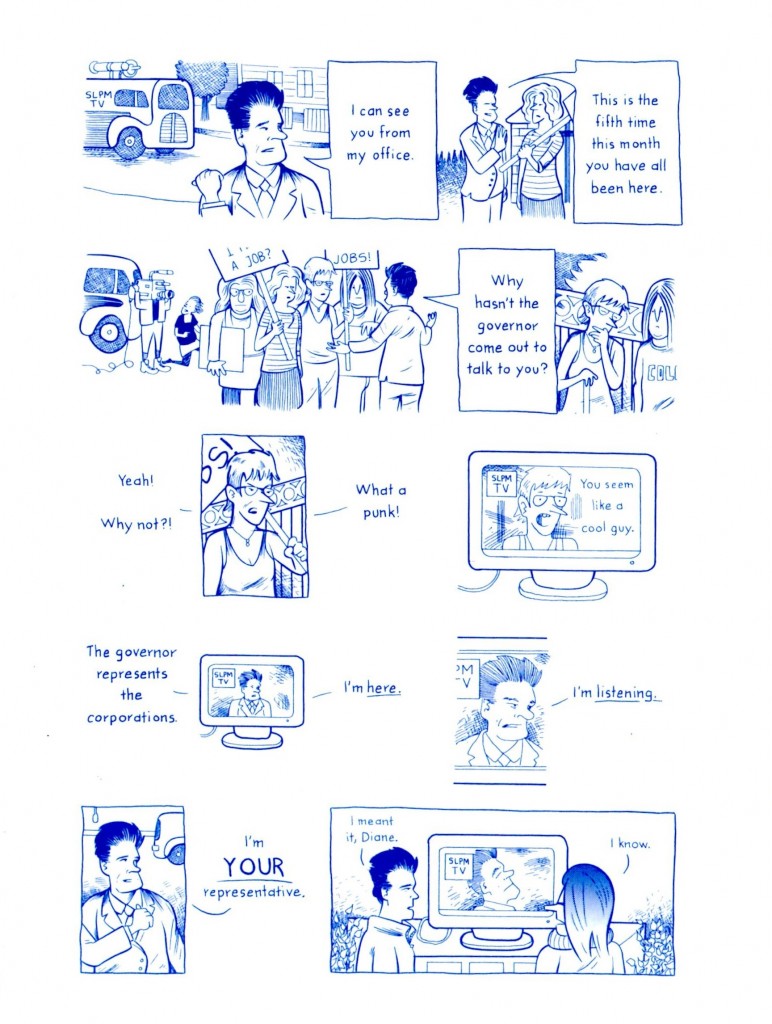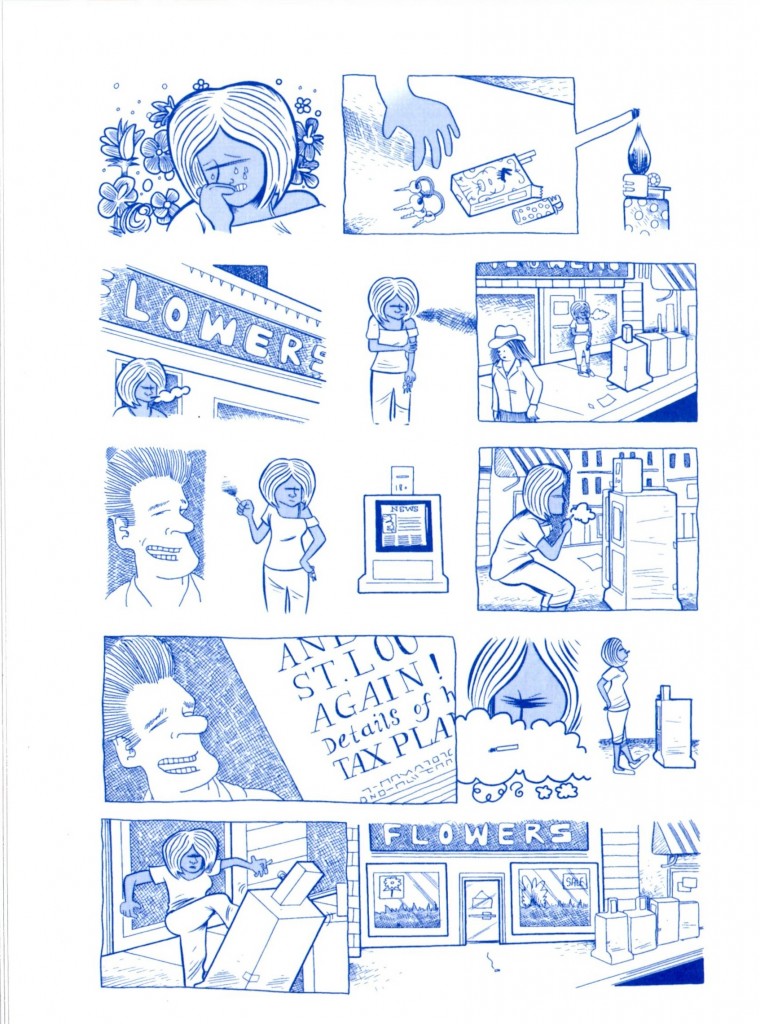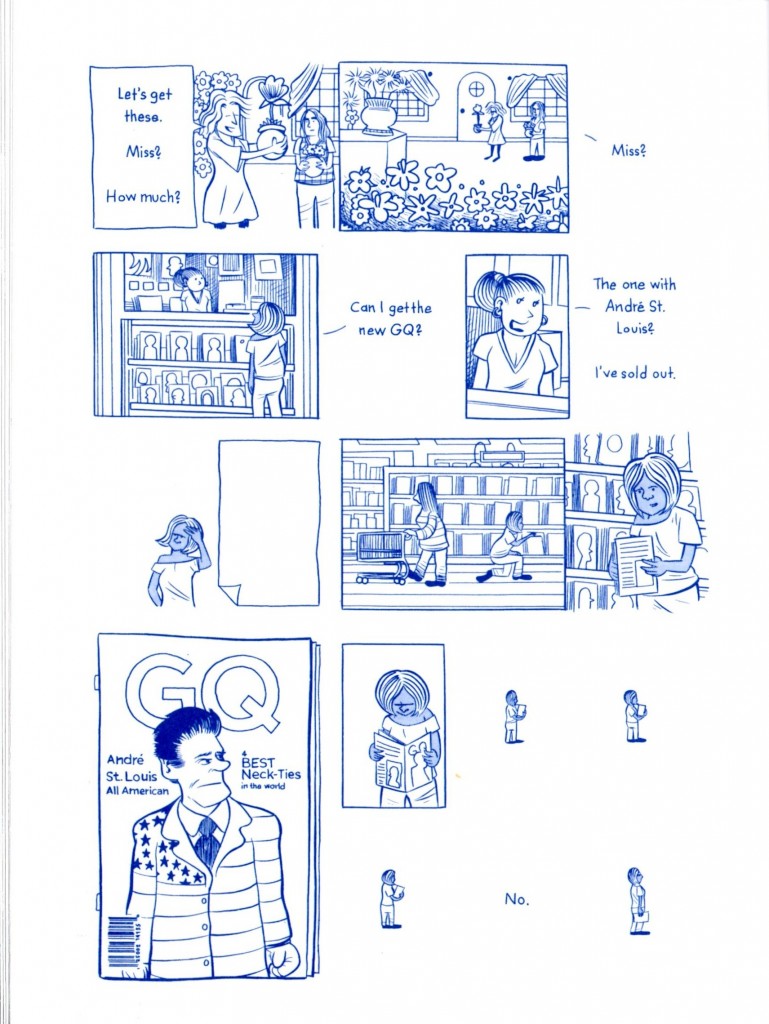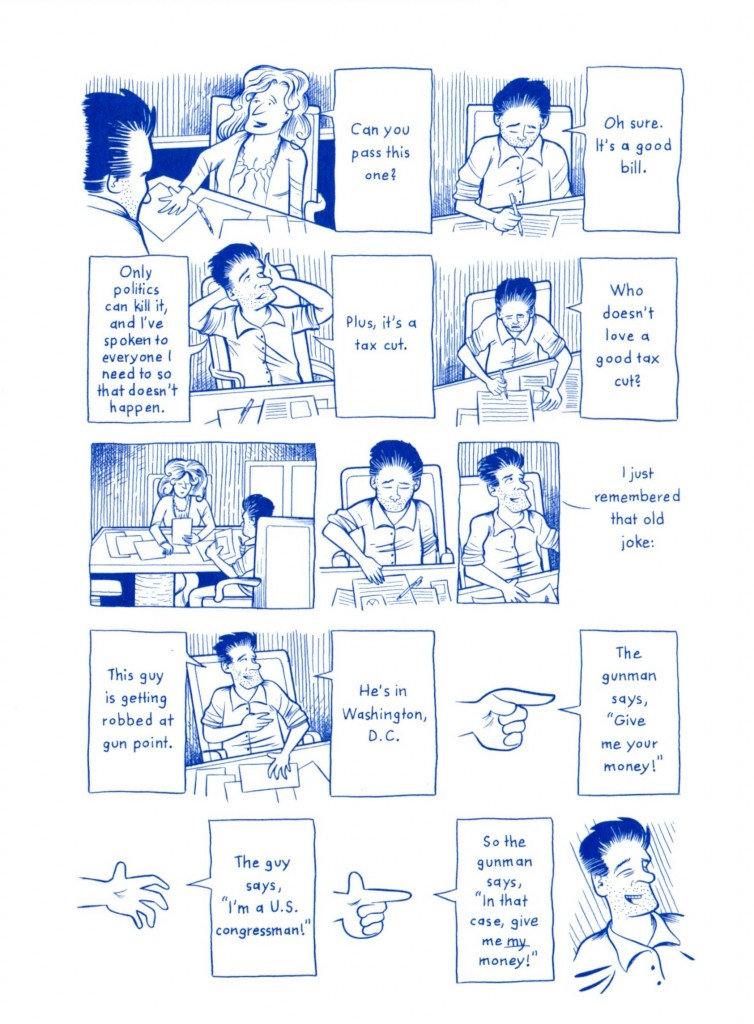The comic centers on the campaign of Andre St. Louis, a republican representative running for governor of an unnamed state. At the outset, St. Louis seems like a cipher for all of the worst clichés of a politician. He is a prolific womanizer. He appears disheveled and unshaven in private, immaculately groomed in public; the suspicious duality of the man in public office.

Stylized and cartoonish as they are, the characters still emerge as expressively human. It begins with St. Louis wining and dining a girlfriend with the ulterior motive of somewhat brusquely dumping her; it shortly becomes evident that this is not for him an unusual occurrence. He has the statesman’s gift of forging a warm rapport with a crowd of constituents, but seems callous and aloof to those in his own immediate life.
These opening events are relayed through a conversation with his female doctor, a friend and trusted confidant. There are latent suggestions from the beginning that our protagonist is a man haunted by personal issues which could be instrumental factors in the eventual collapse of his political career, and that these dual female characters may play a substantial role in this laconic narrative.
Apart from an abrupt turn towards the editorial at the end, most of the book—though about politics—is not preachy or even overtly political. Andre’s democratic rival, in the few pages she appears, is similarly portrayed as a principled character with some possibly troubling secrets of her own, attempting to stay above the fray of mudslinging or shady backroom politics. It’s a story which refreshingly addresses politics where pols of either stripe are not defined as trite caricatures, devoid of an ethical compass but rife with self-serving corruption and graft. It instead indicts an electoral process flawed by a media too hungry to corrupt it with gossip and irrelevant personal issues, and a populace too ready to shift in the resultant winds.
Ultimately, the principle message seems to be that in the deceptive realm of politics, integrity and fealty to the truth may sooner be your unraveling than calculated dishonesty. For those who fail to tread the nebulous line between the two, all of those yard signs and campaign fliers could in a moment be reduced to so much debris unceremoniously discarded by an apathetic public.
This story is illustrated by Dinski with elegant simplicity, the plot alternating between the gubernatorial campaign at its center and the woman introduced in the opening pages as St. Louis’ spurned lover. Much of it is told through a unique story telling technique referred to by Scott McCloud in “Understanding Comics” as “aspect to aspect”; panels consist of fragments of image and dialogue, seen through a wandering eye traversing different moments and spaces. At times this serves to evoke an atmosphere more then directly portray action, leaving it to the reader to fill in the blank spaces. This proves to be an effective stylistic choice; just as Andre must, by necessity, craft his image and professional future by carefully omitting certain details of his own private life from the public, so some of the most impactful moments of “Ablatio Penis” are those left off the page.
The comic itself is a lovely physical item, printed by boutique comic publisher 2D cloud in an 8″6 inch format. Its union made and costs five dollars.





